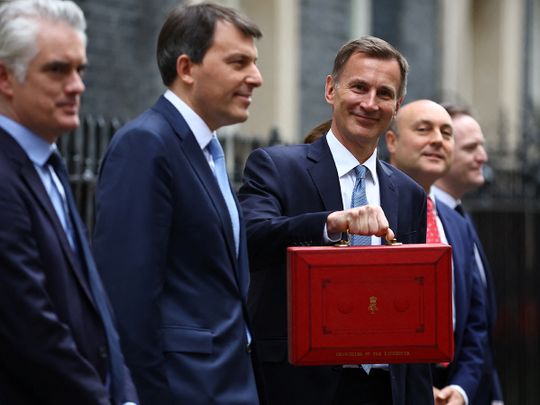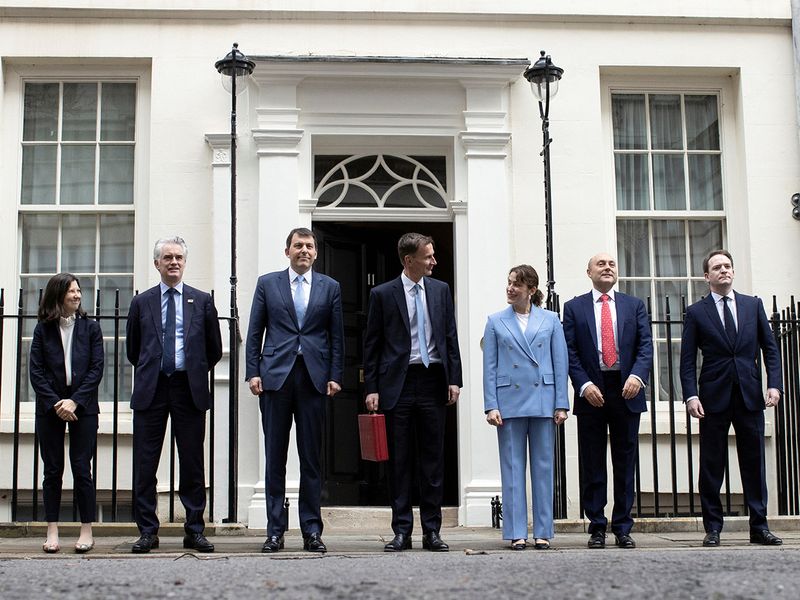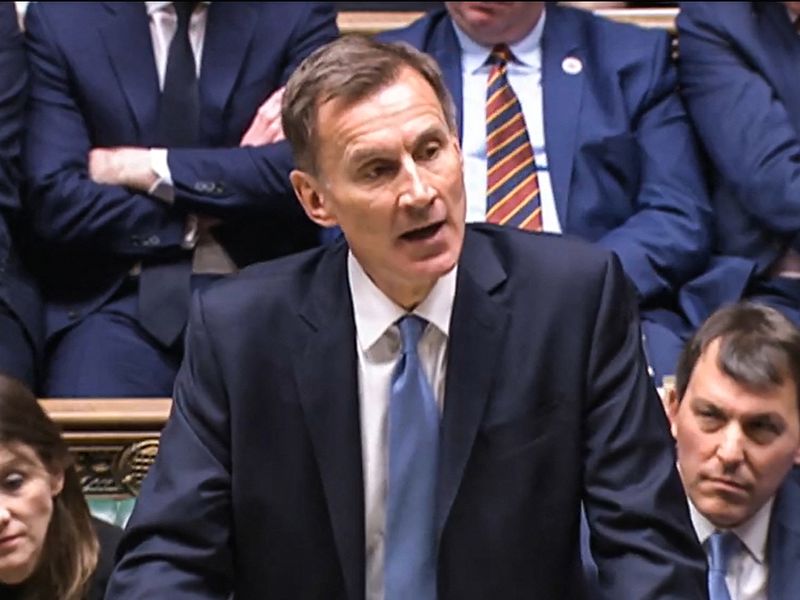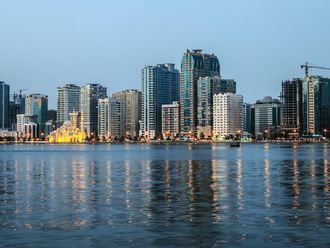
London: Finance minister Jeremy Hunt announced on Wednesday a plan that he hopes will speed up Britain's stagnating economy, including childcare and tax reforms to get more people into work and corporate tax breaks to boost low levels of business investment.
Saying the world's sixth-biggest economy was now expected to avoid a recession this year - even if it is still set to contract - Hunt also said he would extend help for households hit by soaring energy bills and freeze a tax on fuel.
"In the face of enormous challenges, I report today on a British economy which is proving the doubters wrong," Hunt said, to jeers from the opposition Labour Party which is riding high in opinion polls ahead of an election expected next year.

"In the autumn we took difficult decisions to deliver stability and sound money," said Hunt, who was rushed into the Treasury last October to undo the plans for tax cuts that sowed chaos in financial markets during Liz Truss's brief premiership.
"Since mid-October, 10-year gilt rates have fallen, debt servicing costs are down, mortgage rates are lower and inflation has peaked. The International Monetary Fund says our approach means the UK economy is on the right track." After the shocks of Brexit, a heavy Covid-19 hit and double-digit inflation, Britain's economy is the only one among Group of Seven nations yet to recover its pre-pandemic size, having already suffered a decade of near-stagnant income growth.
Big tax cuts
Hunt and Prime Minister Rishi Sunak resisted calls from some lawmakers in the ruling Conservative Party for big tax cuts now, focusing instead on the debt rules he announced late last year to calm the chaos in Britain's bond markets.
But he found money to extend the government's energy bill subsidies for households by a further three months and a decade-long fuel duty freeze by a another year.

He also announced a new incentive for business investment that will allow companies to offset 100 per cent of their capital expenditure against profits, although it represented a scaling-back of tax breaks under a previous, two-year scheme.
Other measures included more investment in nuclear power.
Hunt said the government would add 11 billion pounds to the defence budget - which has been stretched by Britain's support for Ukraine in its war with Russia - over the next five years.
Recession avoided
Under a new set of forecasts, gross domestic product was set to shrink by 0.2 per cent in 2023 rather than contract by 1.4 per cent as projected by the independent Office for Budget Responsibility (OBR) in November.
Since then, energy costs - which soared after Russia's invasion of Ukraine - have come down and there have been signs of a recovery in some economic data.
"Today the Office for Budget Responsibility forecast that because of changing international factors and the measures I take, the UK will not now enter a technical recession this year," Hunt said.
The OBR forecast that economic output would grow by 1.8 per cent in 2024 and by 2.5 per cent in 2025, Hunt said, compared with its previous forecasts for growth of 1.3 per cent and 2.6 per cent respectively.
"Despite continuing global instability, the OBR report today that inflation in the UK will fall from 10.7 per cent in the final quarter of last year to 2.9per cent by the end of 2023," Hunt said.
Many economists have said Hunt probably wants to hold back some fiscal firepower for closer to the next national election.
But Wednesday's forecasts underscored the limits on the government's options going forward.
They showed that Hunt's target to get Britain's 2.5 trillion pounds of debt falling as a share of GDP in five years' time was on course to be met with a buffer of just 6.5 billion pounds.






